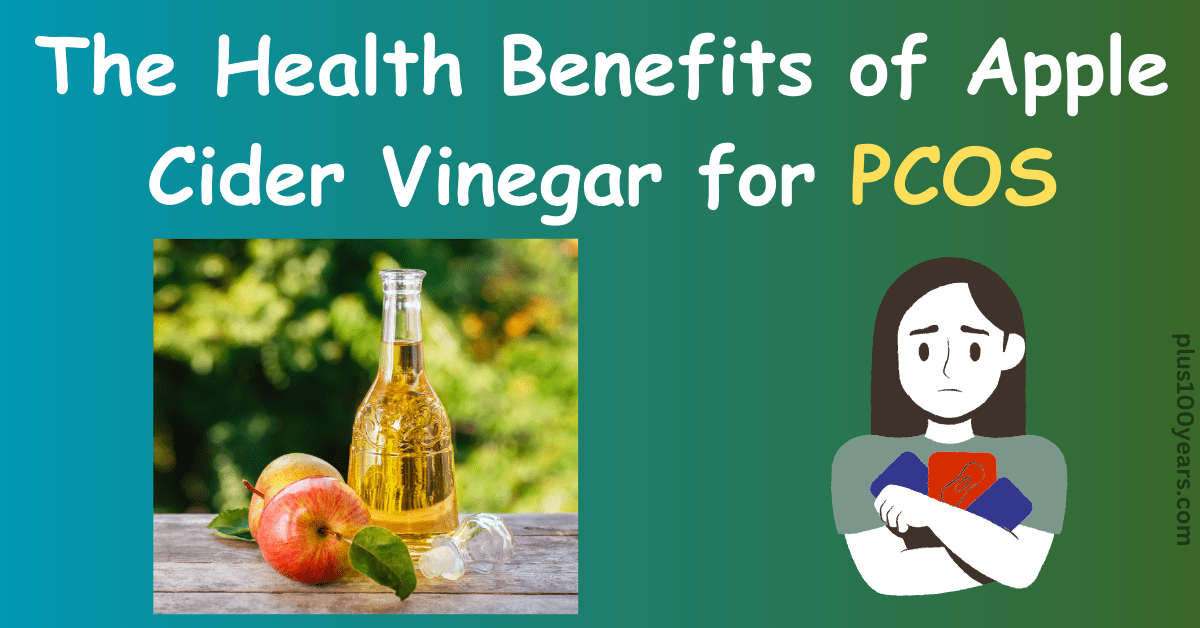Updated: 30-07-2025, Author: Dietitian – Hetal Mehta
Getting pregnant is already a herculean task in itself, given the lifestyle of today. And with a PCOS case, it gets tougher because the menstrual cycle is not normal.
Access the PCOS Diet Plan to Get Pregnant PDF from here.

Polycystic ovary syndrome (PCOS) is a hormonal disorder where women may have infrequent or prolonged menstrual periods or excess male hormone (androgen) levels. Losing 5% to 10% of current weight may be enough to jump-start menstrual cycles.
In layman’s terms,the situation is you want to get pregnant with a PCOS case and the doctor says when you will lose some weight your cycles with get normal and then viola!
As soon as we talk about weight, diet is definitely playing a big role in getting your pcos management.
Following a PCOS-specific diet to regulate insulin production stimulates lipolysis, thus helping in weight loss and weight management. So, how can Indian diets be tweaked to ensure weight loss?
We will discuss that in this article, followed by a 4-day meal plan for PCOS patients. Let’s start with focusing first on dos and don’ts
PCOS Diet Plan To Get Pregnant
1. Stay close to nature
A whole-food, plant-based diet is a lifestyle change.
Focus on eating plant-based food.
✅ Fruits,
✅ Vegetables,
✅ Legumes,
✅ Seeds,
✅ Nuts,
✅ Whole grains) and
Great Tip
Limit animal products like meat and dairy.
These are high-fibre foods, hence they help in combating insulin resistance by easing the digestion process and balancing the effects of sugar in the blood. Minimise the amount of added sugar, fat, and salt.
Also, packaged foods have preservatives that disrupt the normal hormonal balance in your body; henceforth should be avoided as much as possible.
The fat content of processed meat is very high and causes inflammation as well as leads to obesity.
Food containing red meats like luncheon meats, hot dogs, and sausages should be removed from the diet, as they increase estrogen levels abnormally.
2. Balancing the see-saw of the glycaemic index
The glycaemic index is the ability of a food product to spike your insulin level. To avoid weight gain and other diseases like type 2 diabetes, it is important to eat food that has a low glycaemic index.
Whole grains, such as brown rice, quinoa, millet, and whole wheat, are low in glycaemic index.
Also, because these grains are not processed, they still contain the germ of the grain, where all the nutrients are stored.
They are also higher in fibre, which helps you stay full longer without the need for constant snacking. This is correlated to the above point of staying closer to nature.
Great Tip
High glycemic index foods are not limited to carbohydrates. Starchy fruits and vegetables like potatoes (sweet and regular), butternut squash, corn and very sweet fruits are high in glycaemic index.
Low-glycaemic veggies, such as lettuce, broccoli, cucumbers, tomatoes, and green beans, should be liberally included in the diet.
In terms of fruits, avoid too much consumption of extremely sweet fruits like mango and banana.
For example, having half a mango after every meal just because it’s the mango season is not good for a PCOS body.
3. Include healthy fats
There are “good” types of fat and “bad” types of fat that play different roles in your body. Substitute “good” fats for “bad” fats, rather than avoiding fats altogether.
Trans fats, which are man-made by changing the chemical bonds, are found in the fat, are “bad” and should be avoided at all costs.
Did You Know?
Trans fats can be found in hydrogenated oils, which are added to things like processed peanut butter and fried fast foods, butter, margarine, and lard.
Healthy fats are found in olive oil, canola oil, avocado, nuts, and fatty fish, among other foods.
Unsaturated fats like these can lower your cholesterol and reduce your risk of heart disease, help you stay full and regulate your blood sugar, which is important for women with PCOS.
4. Cut out sugar completely
Whenever you consume sugar, you give way to increased blood sugar levels. Whether it’s chocolate, ice cream, tea or cold drinks, you need to give up all of them.
Some alternatives to sugar are stevia, honey and jaggery, but it’s preferable to cut these out completely unless you have an uncontrollable sweet tooth.
But PCOS does cause some cravings, so these substitutes can be taken sparingly.
5. Anti-inflammatory foods are your friends
Calming the chronic low-grade inflammation, these soothe symptoms of PCOS and may help you get pregnant more easily.
But while giving some stability to your system also improves your immune system and gives you glowing skin.
The veggies enriched in vitamin A like Mustard greens, spinach, and kale are good for you.
Berries are a rich source of antioxidants such as red grapes, cherries, papaya, melon, blueberries and blackberries. These fruits will also help in controlling your sweet cravings.
Many of the most inflammatory foods: trans fats, refined carbohydrates, added sugars, and animal products (especially margarine and red meat) can promote inflammation, so these should be avoided as much as possible.
6. Choose Lean Protein
Indian diets are based on lean proteins like legumes. Legumes also give you a lot of choices in terms of cooking, though one of the best ways is to make sprouts.
The bioavailability of nutrients is very high in it. You can also include egg whites (avoid egg yolk till you get pregnant), skinless poultry and fish.
Fishes that can be consumed include sardines, tuna, salmon, and mackerel. Again, stress is on avoiding processed meats like lunch meat or hot dogs.
7. Be Smart About Coffee and Alcohol
As much as you may love your morning cup of coffee or your nightly glass of red wine, you may want to consider limiting or eliminating them for the sake of your fertility.
Substituting it with green tea, which is loaded with anti-inflammatory antioxidants, is a good option. Better yet, it may also play a role in preventing diabetes, cancer, and heart disease.
Try it with a squeeze of lemon and a dash of honey. Anyhow, the amount of caffeine should be limited to 2-3 cups per day. Alcohol should be avoided as much as possible.
8. Smaller and more frequent meals
Not eating for longer hours will decrease your blood sugar levels, causing increased hunger. Consequently, you will end up eating way more than your portion size to satiate yourself, shooting up the sugar levels sky-high.
Hence, eating 5-6 meals is recommended, provided the portion sizes are maintained. The idea about the portion size is mentioned in the diet plan below.
9. Consume Less of Dairy Products
It may sound weird, but yes, dairy products are not recommended for women suffering from PCOS. This is because dairy products contain insulin growth factor 1.
Though this factor aids in the growth of the foetus, it is not good for women with PCOS. Substitute it with almond milk, oat milk, coconut milk or rice milk, but these are expensive options. If affordability is an issue, limit their amounts and prefer curd to whole milk or paneer.
Here Is A 4-day Diet Plan For PCOS patients
For customised diet plans, you can contact the number mentioned at the end of the article.
Breakfast
Blueberry oats bowl (2 tbsp oats in 1 glass low-fat milk)/ Millet dosa (1) with green chutney and coffee without sugar/ Carrot – oats idli (3 pieces) with green chutney / Veg omelette (2 egg whites) with toasted bread (2 pieces) with black coffee
Mid-morning
Green tea with 5 almonds / Cut fruits (1 apple, 1 bowl papaya, 5 strawberries) with 1 tsp pumpkin seeds/ Roasted makhana (1 cup)/ Nuts (10 almonds, 5 walnuts, 15 raisins)
Lunch
Whole wheat chapati (1) with curry (1 bowl) and sprouted salad (1 bowl – 1 tbsp sprouts, ½ cucumber, 1 medium tomato) / Multigrain roti (1) with dal (1 bowl) and vegetable curry (1 bowl) and salad (1 quarter plate)/ Boiled brown rice (2 tbsp) with rajma (1 bowl) with veg raita (1 bowl curd, ½ cucumber, 1 tomato)/ Fenugreek thepla (1) with veg curry (1 bowl) and curd (1 bowl)
Evening snack
Strawberry yoghurt (without sugar, 1 bowl)/ Buttermilk (1 glass, without sugar or salt) with walnuts (5)/ Apple smoothie (1 glass)/ Roasted chana nankeen (1 bowl)
Dinner
Home-made chicken soup (1 bowl) followed by Mix veg multigrain wrap (1)/ Sauteed chicken or tofu (100 gm) with vegetables (1 big plate) / Home-made spinach soup (1 bowl) with grilled fish (130 gm) and steamed vegetables (1 quarter plate)/ Home-made tomato soup (1 bowl) followed by brown rice veg pulav (1 quarter plate)
Thanks for reading the PCOS Diet Plan to Get Pregnant




